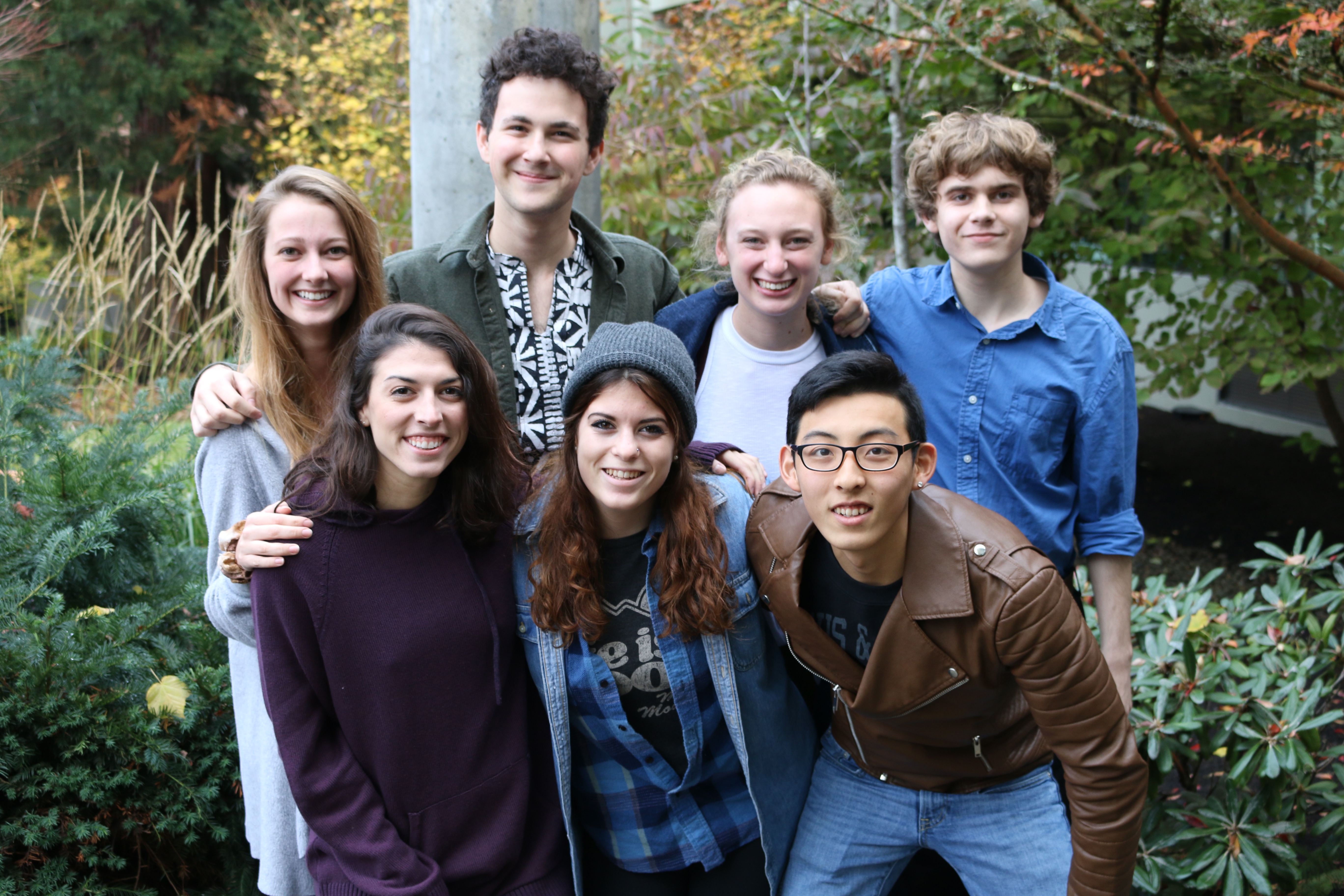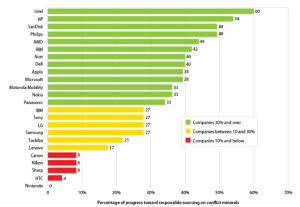
By ALLIE MCRAITH
Most technology on campus, both the school’s and individual students’, contains minerals — specifically gold and/or the 3Ts (tin, tantalum and tungsten) — that armed groups in the Democratic Republic of Congo profit from via illegal trade.
The Enough Project — a non-governmental organization based in Washington D.C. dedicated to stopping violence in African nations fueled by the sale and pillaging of minerals, ivory, diamonds and other natural resources — selected Lewis & Clark as one of 15 colleges they are sponsoring and mentoring students at in order to change their campus’ electronic purchases and tech investment.
Marissa Sandgren ’16 is the Enough Project intern that also serves as the LC campus organizer and chair of the Lewis & Clark for Conflict Free Minerals committee, an ad-hoc committee in Senate.
LC students have already shown support for the conflict-free minerals initiative because a resolution passed in Senate in 2011 (FA11/SR002).
“Unfortunately, that resolution has no concrete effect. It doesn’t reach any higher-ups, but it did show that the student body supported this issue then. So now, we are trying to reach the administrative level to effect real change,” Sandgren said.
At a seminar Sandgren attended in Sept. in Washington D.C. she was briefed on the interplay of issues resulting in the sale and purchase of illegally-mined conflict minerals. Sandgren’s biggest takeaway was that the conflict in Eastern Congo has resulted in the most deaths in a conflict second only to World War II.
These public campaigns largely start on college campuses, which is where Sandgren (and her fellow Enough Project interns nationwide) and her committee step in.
“LC would be the first school in Oregon to implement conflict-free mineral policies when purchasing electronics and choosing which companies we invest in,” Sandgren said. “But we are also trying to help other universities in Portland pass similar initiatives.”
The committee currently has 10 members, two of whom are ASLC Senators. One committee member, Sabina Bloom ’17, is tasked with reaching out to other Portland universities. So far, she has contacted the student governments at Portland State University and University of Portland.
“Our hope is to find students that are as passionate about this issue as we are and who are interested in forming committees similar to ours on each of these campuses. College campuses have a strong influence over the direction of policy within electronics corporations due to their role as prominent consumers of electronic devices. Our overall goal is to encourage these companies to follow the lead of Intel and to take a closer look at the source of their minerals,” Bloom said.
This initiative would come on the heels of a resolution passed by the Portland City Council on Aug. 26, 2015 to ensure “that cellular devices and other key communication equipment purchased by the city are not connected to killing, child abductions, or sexual violence in the Democratic Republic of the Congo.”
But there is still more to be done before LC can claim that honor, and the committee began by talking to IT.
“When approached with this proposal, I was pleased to see that Lewis & Clark students were engaged and enthusiastic about human rights as they relate to the world’s technology market. I think it’s a great idea to help the technology industry ween themselves off of conflict materials,” Trevor Dodson, Senior Director of Infrastructure, said via email. “At this point, it would be challenging for the college to take a rigid conflict-free stance given that the marketplace is not conflict-free. To put it simply, as an example, nobody sells a completely conflict-free computer.”

Next, Sandgren plans to follow-up with the Office of Business and Finance to find out if the College is investing in any of the tech companies that are low on the rankings [see graphic] and to try and “find a way to divest from these companies or pressure these companies to better track their supply chain.”
On Dec. 2 at 7 p.m. in Council Chambers, the committee is hosting a screening of “When Elephants Fight,” a documentary Professor Elizabeth Bennett encourages all students to attend as it “will help us to better understand how our individual and institutional consumption can be part of the solution — not part of the problem.” Bennett, whose work focuses on social justice in the global economy, will provide more information in order to help students further understand the role consumers play in this conflict.
“We live in an era of globalized supply chains. Raw materials are often grown or mined in one country, processed in the next, assembled in yet another, and (finally) sold to consumers in a different continent altogether. At each stage of production, there is opportunity for everyday farmers and workers to share in the profits. However, this is all too seldom the case. Profits are often consolidated among the few, and used to exploit workers, corrupt officials, and fund conflict,” Bennett commented via email, previewing her address at the film screening.
Without an understanding the nuances of economics, viewing the documentary might help depict the role students play on a micro-level.
Ultimately, that is why Sandgren got involved with Enough Project.
“It is hard to understand what our role is as a Western consumer so many miles away from the conflict but these companies are literally in our backyard because some of the big [companies] are in Portland. We as students and consumers can create a change,” Sandgren said.
Subscribe to the Mossy Log Newsletter
Stay up to date with the goings-on at Lewis & Clark! Get the top stories or your favorite section delivered to your inbox whenever we release a new issue.

Leave a Reply